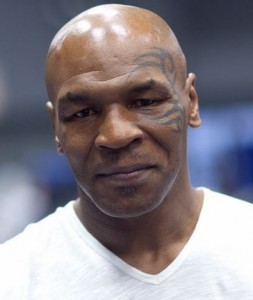Since the early days of cinema, our society has become fascinated by the troupe of the “Child Star”. There are actors who make the transition from child star to working adult actor with ease; Sarah Jessica Parker, Ron Howard, Leonardo DiCaprio, Keanan Thompson, and Claire Danes, to name a few.
There are also those who, once hitting adulthood, essentially retire from acting and use their fame as a platform to explore other interests, such as Shirley Temple or Mary Kate and Ashley Olsen. But these aren’t the Child Stars that stick out in our mind- it’s the train wrecks, the cautionary tales, and the failed comeback kids that we mostly associate with this term “Child Star”.
From Dana Plato, who went from being the teenage female heartthrob principle character on the successful sitcom Diff’rent Strokes, to holding up a Las Vegas video store for drug money and later OD’ing; to Michael Jackson, King of Pop, who from age 6 till his death, endured a demanding performance schedule in conjunction with an abusive home life and constant media scrutiny. Once hitting middle age, physical and emotional exhaustion wore him down and died tragically due to a lethal cocktail of prescription drugs.
In more recent years, we have witnessed more extreme, highly publicized versions of what the media has referred to as “mental breakdowns”. From Britney Spears’ public head shaving, to the reckless drunken antics Lindsay Lohan, to Amanda Bynes erratic transformation and behavior, we are fascinated by the complete 180 these seemingly well-adjusted children make when confronted with adulthood.
These tragedies have become so common, that it is now referred to as “The Curse of the Child Star”.
Mara Wilson, child star of such films as Miracle on 34th St., Matilda and Ms. Doubtfire, recently was interviewed on NPR regarding an article she wrote breaking down the anatomy of a Child Star’s decline. A supernatural curse is not responsible, but rather it’s attributed to being over indulged, over worked, over exposed, manipulated, and exploited during this early developmental phase of life. These factors, coupled with a lack of stable, appropriate parental guidance to hold them accountable when necessary and keep them grounded, takes away their ability to truly experience a childhood.
Now, I know what you may be thinking- it is common that we justify their downward spiral in adulthood due to their “inability to experience a childhood” because of a high demand work schedule in youth, but it is so much more then that. Childhood is more then just being allowed to play with other kids their age on the playground every so often; the childhood phase is when one experiences the most cognitive development at a rapid rate. It’s the time to learn how to process, understand, communicate, make good judgment calls, and this period of development becomes stunted when the pursuit of fame and money begins to override the needs of the child. Everything a child sees, hears, experiences, etc., leaves a fingerprint on their brain that can’t be removed, ultimately effecting who they become in adulthood. When this critical period is taken for granted it becomes a formula for catastrophe.
So what can we learn from this? If we are blessed with performance prodigy children, do we hinder their desires to develop this talent? Should Motzart’s mother have burned the family piano and shoved an abacus in his face, the first time the 4 year old played An die Freude ? No way! Believe in your children, foster their creative curiosity and support them in achieving their full potential, but never forget your role as a parent; to protect their innocence and always place their emotional and physical needs before everything else. Also, remember your children aren’t business associates, or clients, or best friends, they are kids. The whole world is still new to them and they need you to be their guide. Childhood is fleeting; so let them enjoy the experience.
If you are raising an exceptionally gifted child but are hesitant to develop this talent because you are afraid of becoming another “Dina Lohan” or “Joe Jackson”, then make an appointment with me today. I have the ability to provide you with the proper parenting tools that will allow your child to excel, while still providing stability and proper boundaries, so your kids can still be kids. So give my office a call- (212) 599-3195.
To hear Mara Wilson’s interview on NPR, check out this link:
To read the Mara Wilson’s article, check out this link:



 It sounds crazy, but hypnosis can be used for better orgasms. A lot of people (mostly women, but certainly men too) come to me either unable to orgasm completely or unable to orgasm enough. Not only do their sexual needs go unfulfilled, but the disparity in orgasms can lead to relationship problems.
It sounds crazy, but hypnosis can be used for better orgasms. A lot of people (mostly women, but certainly men too) come to me either unable to orgasm completely or unable to orgasm enough. Not only do their sexual needs go unfulfilled, but the disparity in orgasms can lead to relationship problems. I came across an article recently about HypnoBirthing. I get asked whether I do HypnoBirthing from time to time, and the answer is an emphatic ‘yes.’
I came across an article recently about HypnoBirthing. I get asked whether I do HypnoBirthing from time to time, and the answer is an emphatic ‘yes.’